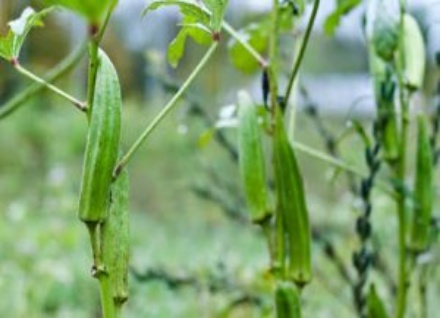Okra Farming Business In Nigeria: Guide on How To Start (2026)
Okra farming in Nigeria is a business you should try your hands on. It is not capital intensive and at the same time, it is highly lucrative. Also, it has a readymade market for it and as such, you are sure to sell your products if you market it as you should. Some people start from their backyard and still make for themselves money.

Why is the demand for okra high? Okra is a vegetable used for making the Okra soup which is a delicious and highly nutritious soup popular in all the nooks and crannies of the country. This soup is used in eating fufu, semovita, eba, pound yam, amala, etc.
People like the vegetable because it contains soluble fiber which helps in increasing the feeling of satiety after eating, it helps in maintaining blood sugar level and is packed with vitamins such as A, B, C, K. enough of this, read up on the nutrient composition in Okra. Let go straight to the steps it takes to start an Okra farm business in Nigeria.
Land Selection & Preparation
Okra does well on variety of soil as long as the soil is not water-logged. However, make sure the soil is fertile and well-drained. Also, make sure the area chosen for the cultivation is exposed to sunlight.
After making your choice which could be in your backyard, the next step is to prepare the land for planting. This is done by tilling to loosen up the soil and remove all rocky and stony materials from the soil.
After that, you can add manure to improve the fertility of the soil prior to planting. Okra does better on a raised surface so it is best to make ridges.
Planting & Post Planting Operation
Okra is planted usually in the dry season when the weather is still warm and sunny. For Okra, temperature is very important and the soil temperature prior to planting is about 15 – 20C prior to planting, soak the seed in water for a day or two (this help in hastening the process of germination).
The seeds should be planted 1 – 2 inches apart. Also, other crops can be planted alongside Okra.
After you have planted your crops, you need to take care of it to ensure maximum productive and get the highest economic value you can get. First, you need to water it at least once in a week.
Also, thinning is important once the plant begin to sprout. On the other hand, you need to look out pests and control them to avoid ruining your plans for your farm.
One very common pest that attack Okra is flea beetles and they can be controlled using the rotenone and pyrethrin insecticides. Also watch for other pests and diseases and guard against them to ensure maximum productivity.
Harvesting
About two months from the planting date and you can be harvesting every two days, your Okra should be ready for harvest. If you intend to consume it fresh, you can start harvesting when it is still fresh and soft.
However, if you intend to use the seeds, you need to allow it to dry and the pod start splitting before harvesting. After harvesting, twist the pods and the seeds will come out.
Air dry the seeds for a few days afterwards, you can then store it in an air-dry container and can remain there for over four years. However, don’t keep it that long, it may not stay that long.
This is how easy it is to begin an Okra farm business in Nigeria. Start it and taste the water, it is worthwhile, my mother planted it in her garden so I know!